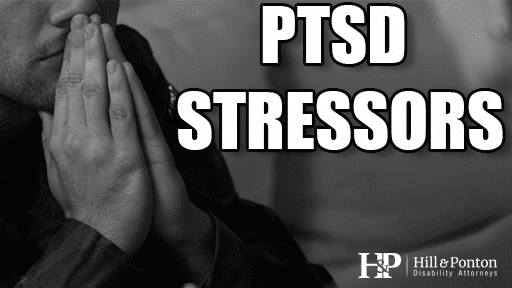Many veterans who served in the Persian Gulf War, Operation Enduring Freedom, and Operation Iraqi Freedom are suffering from multi-symptom, undiagnosed illnesses. This is commonly referred to as “Gulf War Syndrome,” and thought to be the result of exposure to biological or environmental hazards. Unfortunately, because of the nature of Gulf War Syndrome, it is one of the most difficult disabilities to get service connected. However, it is possible, and today we are going to discuss the specific rules in place for this condition and what the VA is looking for when it is evaluating these claims.
Congress has enacted special rules for service connection for Gulf War Syndrome. First, in order to be entitled to the presumption of service connection, the veteran must qualify as a Persian Gulf War veteran. The VA defines a Persian Gulf War veteran as someone who served in active military, naval, or air service in the Southwest Asia theater of operations during the Persian Gulf War after August 2, 1990, including service in Iraq, Kuwait, Saudi Arabia, the neutral zone between Iraq and Saudi Arabia, Bahrain, Qatar, the United Arab Emirates, Oman, the Gulf of Aden, the Gulf of Oman, the Persian Gulf, the Arabian Sea, the Red Sea, and the airspace above these locations.
Second, the veteran must suffer from a qualifying chronic disability. A qualifying chronic disability can be any of the following: an undiagnosed illness; a medically unexplained chronic multi-symptom illness (such as chronic fatigue syndrome, fibromyalgia, and irritable bowel syndrome) that is defined by a cluster of signs or symptoms; or any undiagnosed illness that the Secretary determines in regulations warrants a presumption of service connection.
An undiagnosed illness may be manifested by signs or symptoms such as fatigue, unexplained rashes, headaches, muscle pain, joint pain, neurological symptoms, respiratory symptoms, sleep disturbances, gastrointestinal symptoms, cardiovascular symptoms, abnormal weight loss, or menstrual disorders. It is important to note that the veteran can rely on evidence other than medical evidence that he or she has such symptoms, as long as the symptoms the veteran is experiencing are able to be observed by a non-medical professional. The symptoms also have to be chronic, meaning they have existed for 6 months or more, and the veteran must not have a diagnosis for his or her symptoms. This is very different from the typical rules for service connection, where a diagnosis of a current condition is required.
The second type of qualifying chronic disability is a medically unexplained chronic multi-symptom illness such as chronic fatigue syndrome, fibromyalgia, and irritable bowel syndrome (or another functional gastrointestinal disorder). It is important to note that for this second type of qualifying chronic disability, you will need to show a diagnosis for one of these conditions. There are also nine infectious diseases that fall under the special rules for Gulf War veterans: brucellosis; campylobacter jejuni; coxiella burnetti (Q fever); malaria; mycobacterium tuberculosis; nontyphoid salmonella; shigella; visceral leishmaniasis; and West Nile virus. In addition, if a veteran is service connected for one of these nine infectious diseases, VA regulations recognize certain long-term health effects associated with those diseases, so the veteran may be entitled to secondary service connection for that condition as well.
Finally, the third element of service connection for a Gulf War illness is that the qualifying chronic disability must have become manifest during active military service in the Southwest Asia theater of operations or to a degree of 10 percent at any time since the veteran’s return from Southwest Asia (note that the presumptive period for the nine infectious diseases varies). Chronic fatigue syndrome, fibromyalgia, and irritable bowel syndrome do have their own diagnostic codes, so it is simple to determine whether your condition meets that requirement. However, determining whether an undiagnosed illness has become manifest to a degree of 10 percent or more can be especially difficult, because the illness must be evaluated under the rating schedule for a similar condition. Therefore, it is important to analyze which code the VA used to evaluate an undiagnosed illness and whether a different code would have been more appropriate. If that is the case, be sure to file an NOD so you can continue your appeal and get the benefits you deserve.



